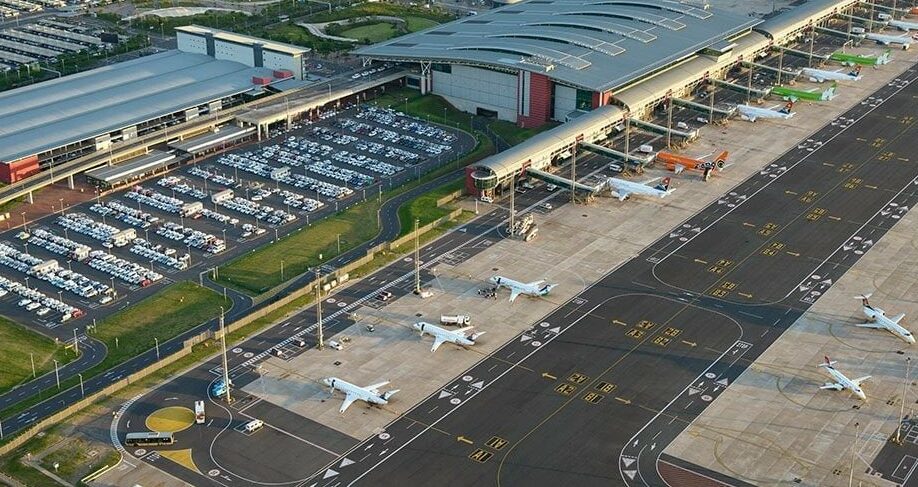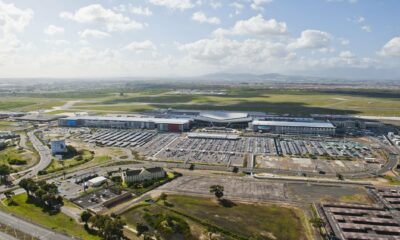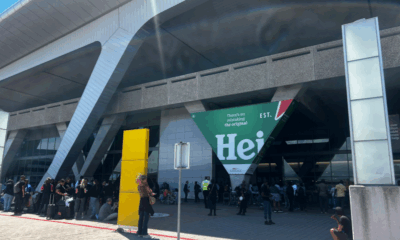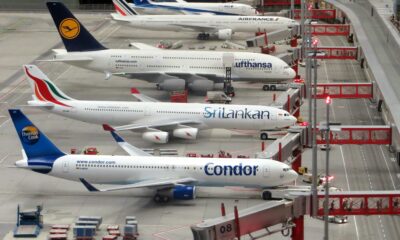Business
Acsa Doubles Profits to R1.8bn While Fortifying Fuel Security at SA Airports

Learning from past crises
For South Africa’s busiest airports, jet fuel is the lifeblood that keeps planes in the air and travellers moving. But in recent years, that supply line has proven fragile. From preventable delays to refinery shutdowns, Airports Company South Africa (Acsa) has seen first-hand how a disruption can bring operations to a grinding halt.
The most recent scare came in December, when O.R. Tambo International Airport suffered a jet fuel shortage that caused major flight disruptions, an embarrassing black mark during peak travel season. That followed the January blaze at the Natref refinery, which further highlighted just how dependent the country has become on imported fuel.
“We consume about 3.5 million litres of jet fuel a day,” said Acsa CEO Mpumi Mpofu at the release of the group’s latest financial results. “If the market cannot supply us with that amount, you see the disruption.”
Building buffers into the system
In response, Acsa has moved to harden its defences. Storage capacity has been expanded to at least 10 days’ supply, new bypass systems have been installed to prevent single-point failures, and a brand-new 18-inch jet fuel line has been added alongside existing pipelines to build redundancy.
Plans are also in motion to expand storage tanks at key airports, ensuring a bigger buffer when external suppliers falter. Mpofu said the aim is clear: resilience. “We’ve created sufficient redundancy in the system to mitigate the risk of ever having an incident of the nature we had before.”
A business back in the black
Despite the turbulence, Acsa’s financial trajectory is pointing upwards. For the year ending March 2025, net profit more than doubled to R1.8 billion, up from R472 million the year before. Revenue rose 13% to R7.9bn, with both aeronautical and non-aeronautical income streams delivering strong growth.
Earnings before tax and other charges jumped to R2.9bn, yielding a healthy 37% margin. The group declared R310m in dividends, with R113m set aside for ordinary shareholdersmore than double last year’s payout.
“This reflects a stronger balance sheet and the company’s sustained recovery from the pandemic years,” CFO Luzuko Mbotya noted.
Investing in the future of aviation
Acsa’s next chapter isn’t just about plugging fuel leaks. The group has set aside R21.7bn for capital projects over the next five years, including upgrades at O.R. Tambo, Cape Town International, and several regional airports.
Long-term strategy, Mpofu said, is anchored on three pillars: resilience, sustainability, and digitisation. This includes predictive maintenance to reduce breakdowns, biometric-enabled passenger journeys to improve efficiency, and partnerships with the CSIR and The Innovation Hub to push innovation in aviation.
Public and industry reaction
Industry analysts welcomed both the profit rebound and the infrastructure upgrades, but social media commentary has been more cautious. Frequent flyers and aviation workers applauded Acsa for finally addressing its “fuel headaches,” but others pointed out that South Africa’s dependence on imports still makes the system fragile.
As one travel blogger put it: “It’s great that Acsa is building storage tanks, but unless SA reduces its fuel import reliance, airports will remain at the mercy of global supply chains.”
Still, after years of turbulence, Acsa’s strong financial results and proactive infrastructure investments signal a company not only recovering, but preparing for takeoff.
{Source: IOL}
Follow Joburg ETC on Facebook, Twitter , TikTok and Instagram
For more News in Johannesburg, visit joburgetc.com


























